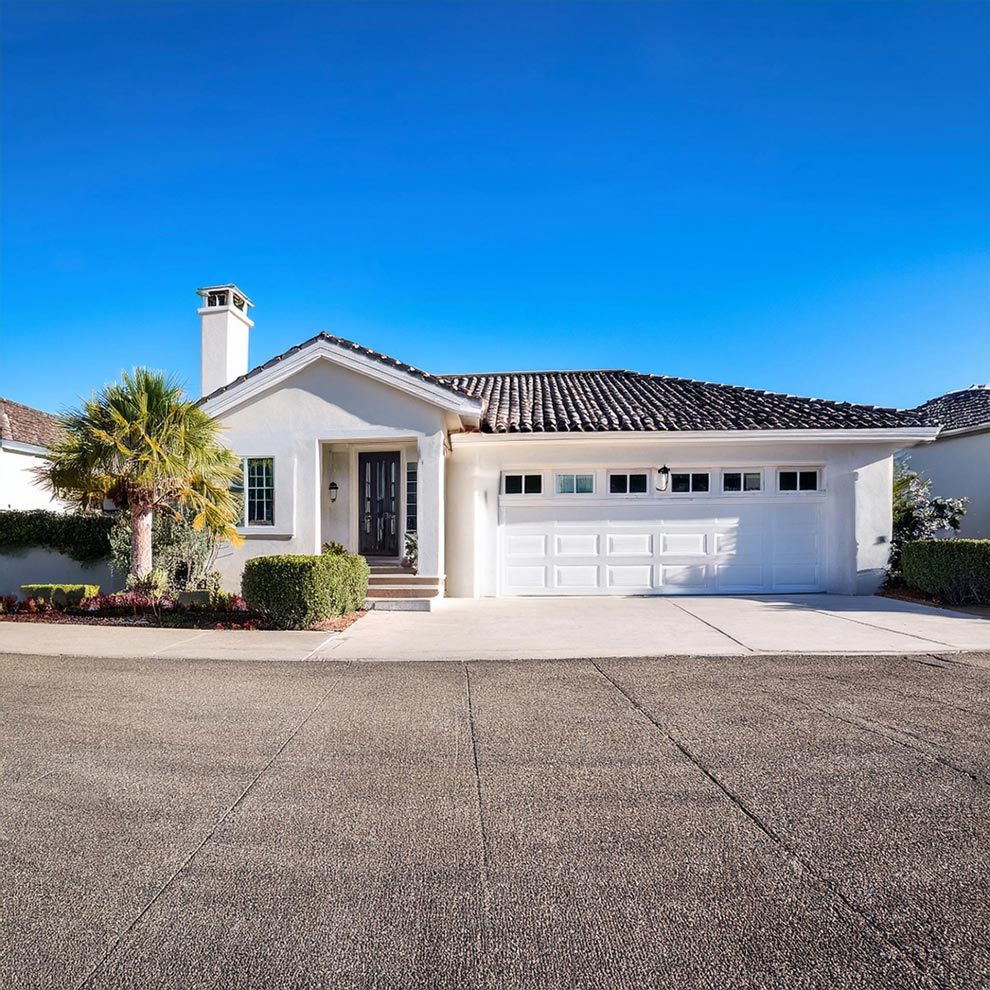Deciding whether to buy or rent a home is one of the biggest financial decisions many people face. With home prices continuing to rise in many parts of the world and rental costs climbing as well, it’s no wonder that individuals are confused about the right choice. From building equity through homeownership to the flexibility of renting, each option comes with its own advantages and disadvantages.
In this blog post, we will dive deep into the question of whether you should buy or rent your next home from a financial perspective. We’ll evaluate the pros and cons of both options, discuss key considerations for making the right decision, and highlight the factors that should influence your choice.
1. The Basics: What Does Buying Mean?
When you buy a home, you’re purchasing an asset that can appreciate over time. As a homeowner, you own the property, and your monthly payments go towards paying off your mortgage, gradually increasing your equity in the home. In addition to the purchase price, homeowners are responsible for paying property taxes, homeowner’s insurance, and maintenance costs.
2. The Basics: What Does Renting Mean?
Renting involves paying a landlord for the right to live in a property. The payments you make do not build equity; rather, they provide you with the flexibility to live in a home without the long-term financial commitment of homeownership. Renters usually sign lease agreements, which specify the rental period and monthly payment, but landlords can increase the rent when the lease is up for renewal.
3. The Pros of Buying a Home
3.1 Building Equity
One of the primary financial advantages of buying a home is the ability to build equity over time. As you pay down your mortgage, you increase the ownership stake you have in your home. Equity can be a powerful wealth-building tool that allows you to leverage the value of your property to finance other investments or expenses.
3.2 Potential Appreciation
Historically, real estate has appreciated in value, making homeownership a key component of long-term wealth-building strategies. While market conditions fluctuate, owning a home gives you the potential for your property to increase in value, which can provide significant financial gains if you sell at the right time.
3.3 Stability and Security
When you own a home, you have the peace of mind of knowing that your housing situation is secure. Unlike renting, where a landlord can raise rent or choose not to renew a lease, homeownership provides stability. This can be particularly important for families who want to avoid the disruption of moving frequently.
3.4 Tax Benefits
Homeowners can also take advantage of several tax benefits. In the U.S., for example, the interest paid on a mortgage is often tax-deductible, as are property taxes in some cases. These deductions can reduce the overall cost of owning a home, making it a more attractive financial option for some buyers. Learn more about the potential tax benefits of owning a home from the IRS.
4. The Cons of Buying a Home
4.1 Upfront Costs
Buying a home requires a significant financial commitment upfront. A down payment, closing costs, and other expenses such as home inspections and legal fees can add up quickly. For many buyers, the high upfront costs can be a barrier to homeownership.
4.2 Ongoing Maintenance Costs
As a homeowner, you’re responsible for maintaining your property. This includes regular upkeep like lawn care, fixing broken appliances, and addressing wear and tear. Over time, these costs can add up and must be factored into your overall financial plan when considering buying a home.
4.3 Market Risk
The real estate market can be volatile, and home values don’t always increase. In some cases, homeowners may see the value of their property decline, particularly during economic downturns. This can make selling difficult, especially if you need to move unexpectedly.
4.4 Limited Flexibility
Owning a home ties you to a specific location, which can be limiting if you want or need to move for work or personal reasons. Selling a home takes time and can be costly, which means that homeowners don’t have the same flexibility as renters to relocate quickly.
5. The Pros of Renting a Home
5.1 Flexibility
Renting provides flexibility that homeownership doesn’t offer. If you want to move to a different city or neighborhood, renting allows you to do so without the hassle of selling a property. Renters can also easily upgrade or downsize their living situation as needed.
5.2 Lower Upfront Costs
Renting typically requires a much smaller upfront financial commitment than buying a home. While you’ll likely need to put down a security deposit, you won’t need to come up with a large down payment or cover closing costs. This can make renting more accessible, especially for those who are early in their careers or still building savings.
5.3 Freedom from Maintenance
One of the biggest advantages of renting is that maintenance and repairs are usually the landlord’s responsibility. Whether it’s a leaky roof or a broken appliance, renters don’t have to worry about covering the cost of repairs.
5.4 No Market Risk
Renters don’t have to worry about the ups and downs of the real estate market. Since they don’t own the property, fluctuations in home values won’t affect them directly, which can be a relief during periods of economic uncertainty.
6. The Cons of Renting a Home
6.1 No Equity
The biggest downside to renting is that you don’t build any equity. Your monthly rent payments go to the landlord, and once your lease is up, you have nothing to show for the money you’ve spent. For those who value long-term wealth-building, this can be a major disadvantage.
6.2 Rent Increases
Rent prices are often subject to increases, especially in high-demand areas. Renters may find that their housing costs rise over time, which can be difficult to manage if their income doesn’t keep pace with rising rents. Unlike a fixed-rate mortgage, rent is not stable.
6.3 Limited Personalization
Renters usually have restrictions on how much they can personalize their living space. While homeowners can remodel, paint, and decorate their homes however they like, renters must abide by the rules set by their landlord. This can be limiting, particularly for those who want to create a space that truly reflects their personal style.
7. Renting vs. Buying: Financial Comparison
7.1 The Cost of Renting
The costs associated with renting include monthly rent payments, utilities (in some cases), and renters insurance. Renters don’t have to worry about property taxes, maintenance costs, or homeowners insurance. However, it’s important to keep in mind that rent is typically an ongoing expense with no return on investment, unlike mortgage payments.
7.2 The Cost of Buying
The costs of buying a home include the down payment, closing costs, monthly mortgage payments (which include interest, property taxes, and homeowners insurance), and maintenance costs. While these expenses are higher than the cost of renting in the short term, homeownership allows you to build equity over time, which can result in a significant return on investment.
7.3 Time Horizons and Market Conditions
One of the key factors in deciding whether to rent or buy is how long you plan to stay in the home. If you’re planning to stay in the same location for several years, buying may make more financial sense, as you’ll have the opportunity to build equity. However, if you’re likely to move within a few years, renting might be the better option, as it provides more flexibility.
Market conditions are also important to consider. In a hot real estate market where home prices are rising quickly, buying may be a smart investment. But in a market where prices are stagnant or declining, renting could be the more prudent choice.

8. When Renting Makes Sense
- Short-term housing needs: If you’re not sure how long you’ll stay in one place, renting provides the flexibility to move when needed.
- Uncertain job situation: If your job requires frequent relocation or there’s uncertainty about your future employment, renting may be the safer option.
- Limited financial resources: If you don’t have the savings for a down payment or prefer to keep your money liquid, renting may be the better option financially.
- Desire to avoid maintenance: Renting allows you to avoid the hassle and expense of home maintenance.
9. When Buying Makes Sense
- Long-term stability: If you plan to stay in the same location for many years, buying allows you to build equity and benefit from potential appreciation.
- Wealth-building: Homeownership is a key component of long-term wealth-building strategies for many people.
- Desire for stability: Owning a home gives you control over your living situation, unlike renting, where you are subject to the landlord’s decisions.
- Tax benefits: Depending on your location, buying a home may come with valuable tax benefits, including deductions for mortgage interest and property taxes.
10. Should You Buy or Rent for Investment?
When it comes to investing, buying a property can provide a significant return over the long term. However, renting can also be a smart choice if it frees up capital that can be used for other investments, such as stocks or business ventures. It’s important to consider your broader financial goals and how homeownership fits into your overall investment strategy.
For example, if you’re able to save on rent and invest in high-growth stocks, the return on your investment might outpace the appreciation on a home. On the other hand, real estate can provide both steady cash flow and long-term appreciation, making it a solid investment for those looking to diversify their portfolio.
11. Final Thoughts: Making the Right Decision for You
Ultimately, the decision to buy or rent comes down to your personal financial situation, lifestyle preferences, and long-term goals. For some, the flexibility and lower costs of renting are the perfect fit, while for others, the stability and wealth-building potential of homeownership make buying the better choice.
Before making your decision, take the time to crunch the numbers and consider all of the factors discussed in this post. Whether you decide to rent or buy, making an informed choice will help you achieve your financial goals and live the life you want.
For more insights into financial decision-making, investing, and wealth-building, explore the other posts on New Mula, your go-to resource for personal finance and investment strategies.
References:
- Tax Benefits of Homeownership: IRS explanation of tax benefits for homeowners.
- Investopedia: Renting vs Buying: A detailed breakdown of renting and buying advantages.



